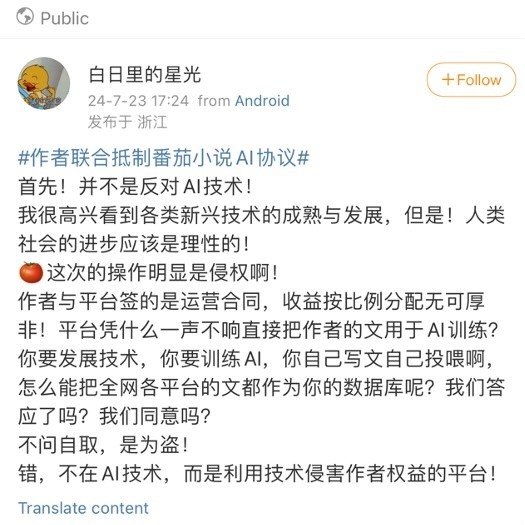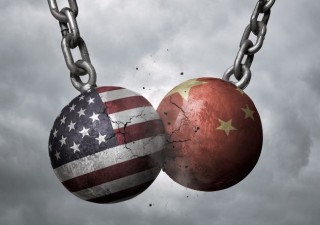Recently, an online protest erupted against ByteDance’s web novel platform, Fanqie Novel, due to the addition of an “AI Training Supplement Agreement” to its signing agreements. This new clause requires authors to agree to allow their works to be used by the platform’s AI for content development. The protest has spread across platforms like Weibo, with over 18 million views, and Xiaohongshu (China’s equivalents of Twitter and Instagram).
Based on the agreement by Fanqie Novel, once signed, all or part of the author’s work and related information may be used for training the platform’s AI models or other new technology development applications, with the generated content being protected by the platform’s copyright. Authors who sign this agreement will have priority to participate in the platform’s new AI feature beta testing. Many authors online have expressed that this agreement feels as if their content is being fed to AI for data training.
In an article by Chinese digital newspaper The Paper, a web novel writer said: “Every novel is the result of a writer’s day and night effort. Forcing it to be fed to AI feels like watching your child become part of someone else’s right after birth, and it is heartbreaking for the writer. Furthermore, after AI uses the ‘child’ to generate new texts, the platform could then accuse the ‘mother’ of plagiarism, which involves significant legal risks.”
According to online forums such as Zhihu and writer hubs, authors are attracted to Fanqie Novel due to several benefits. The platform’s advertising revenue-sharing model rewards authors with higher earnings based on the number of readers and the length of reading time, encouraging them to produce popular content. Additionally, Fanqie Novel supports original works by offering cash subsidies based on completion rates, hosting writing competitions and events to sign new works, etc.
Another web novel writer told The Paper: “The impact of AI is most severe for lower-tier writers, who constitute about 90 percent of the industry. These writers, who are still working to establish a stable income, face the greatest threat. For top-tier writers, AI development is not yet advanced enough to affect their work, and they generally appear indifferent.” This sentiment reflects the growing concerns voiced by emerging writers across Chinese social media platforms.








